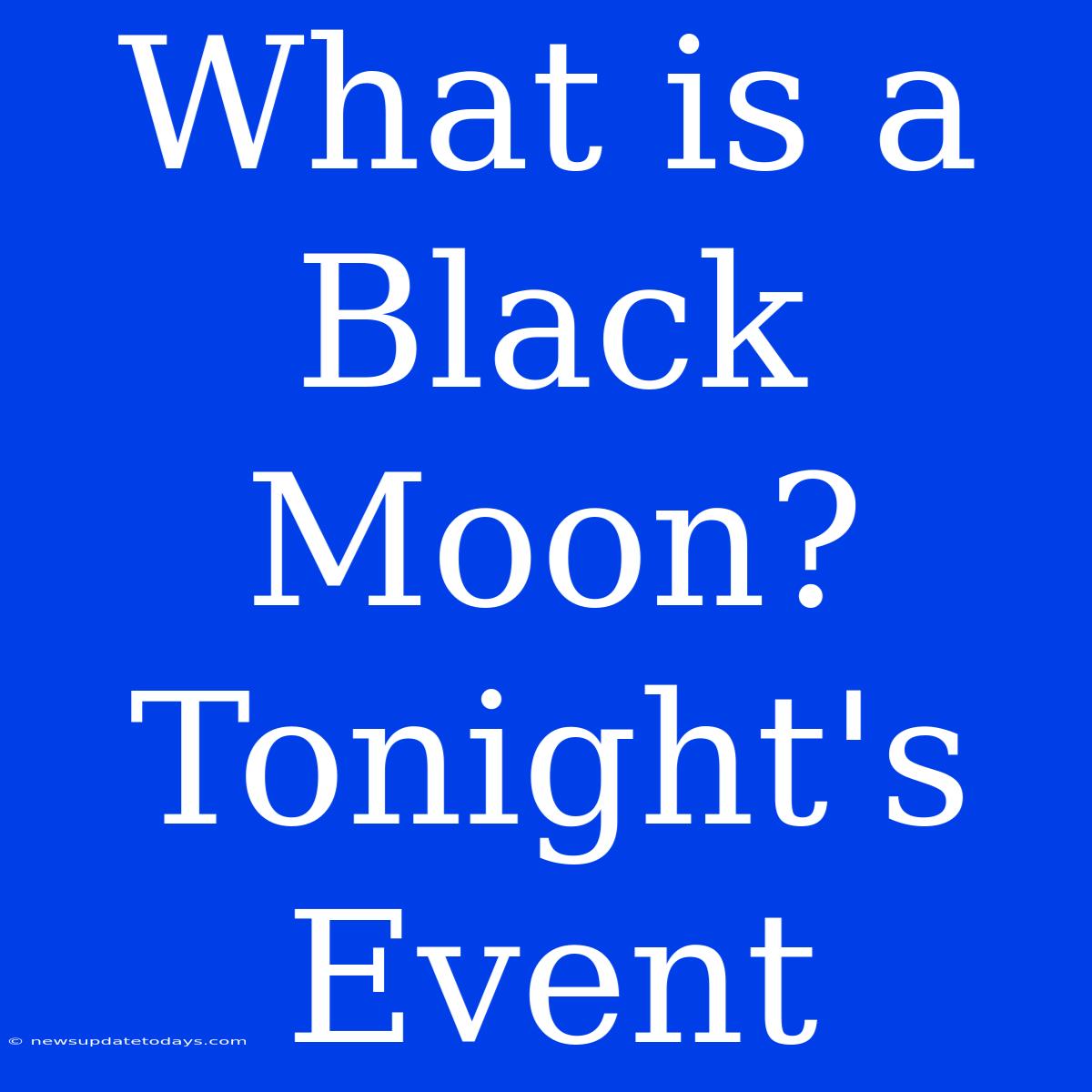What is a Black Moon? Understanding Tonight's Rare Event
Tonight's sky holds a celestial mystery for those who look up: a Black Moon. But what exactly is a Black Moon, and why is tonight's event so noteworthy? Let's delve into this intriguing astronomical phenomenon.
Understanding the Definition of a Black Moon
Unlike its ominous-sounding name, a Black Moon isn't a dark, malevolent entity in the sky. Instead, it refers to one of two slightly different astronomical events, both rare occurrences:
-
Scenario 1: The Second New Moon in a Calendar Month: This is the more common understanding of a Black Moon. A typical month features just one new moon. However, due to the lunar cycle's length (approximately 29.5 days) not perfectly aligning with our calendar months, sometimes a second new moon squeezes into a single month. This second new moon is termed a Black Moon.
-
Scenario 2: The Absence of a New Moon in a Calendar Month: Less frequently, a Black Moon can also refer to the absence of a new moon in a calendar month. This happens when a month begins and ends without a new moon phase.
Why Tonight's Black Moon Event is Special
Tonight's Black Moon likely falls under the first definition — the second new moon in a month. This makes it a relatively rare event. The rarity stems from the subtle interplay between the lunar cycle and the fixed length of our calendar months. The precise timing and visibility of Black Moons vary depending on your location.
Observing a Black Moon: What to Expect (and Not Expect)
It's crucial to understand that a Black Moon, being a new moon, isn't visible to the naked eye. During a new moon phase, the sun illuminates the far side of the moon, leaving the side facing Earth shrouded in darkness. You won't see a dark blotch in the sky; instead, you'll notice the absence of the moon's usual glow in the night sky.
Black Moons in Folklore and Culture
Throughout history, lunar events, including new moons, have held symbolic and cultural significance across numerous societies. While a Black Moon itself might not have its own distinct mythology, its rarity makes it a noteworthy event that can be woven into individual or collective interpretations.
When is the Next Black Moon?
Predicting the precise timing of future Black Moons requires astronomical calculations considering the lunar phases and calendar months. While specific dates vary by location, you can utilize online resources and astronomical calendars to find out when the next one will grace our skies.
In conclusion, a Black Moon is a rare and fascinating celestial event that highlights the fascinating dance between the moon's phases and our human-defined calendar system. While not directly visible, tonight's Black Moon provides an opportunity to reflect on the subtle rhythms of the cosmos and appreciate the astronomical wonders often overlooked in our busy lives. Remember to check local astronomical sources for precise viewing times in your area, although direct observation will not be possible for this specific lunar event.

